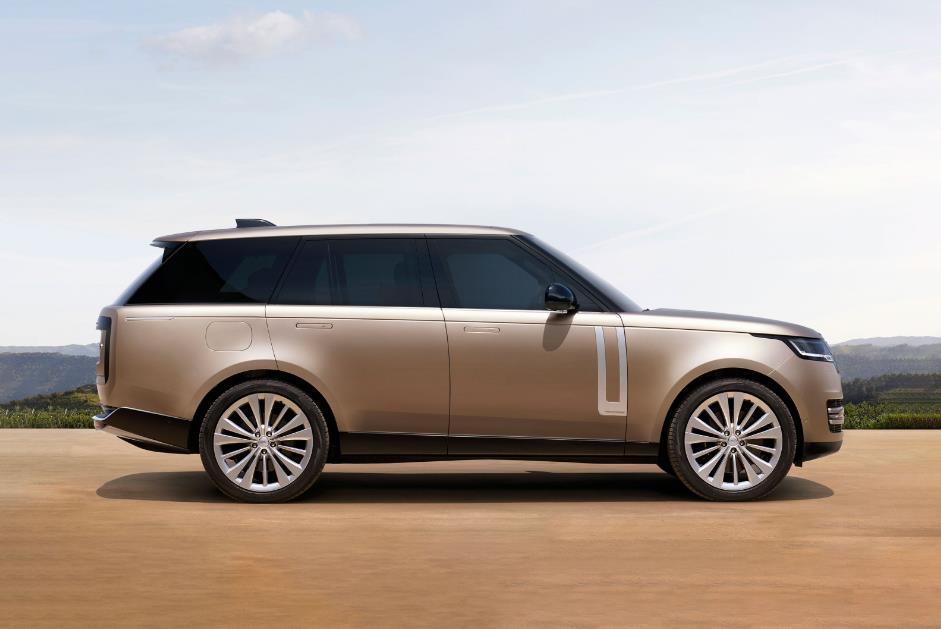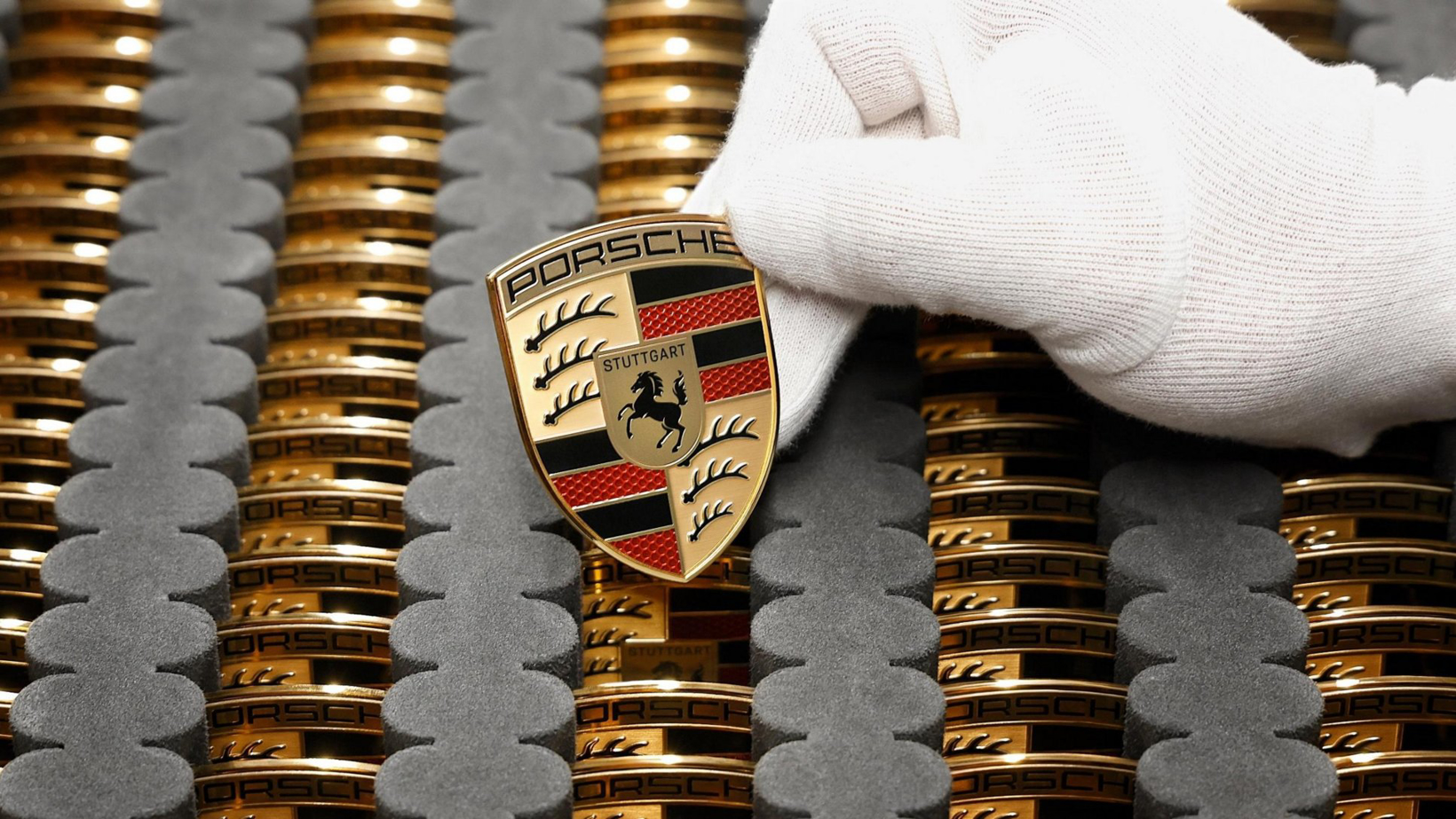China Luxury Car Consumption Tax Policy May Impact European Luxury Brands
According to foreign media reports, with the major adjustment of China's luxury car consumption tax policy—the threshold for the 10% super luxury car consumption tax has been significantly lowered from 1.3 million yuan to 900,000 yuan—many models from European luxury brands such as BMW, Mercedes-Benz, Porsche, and Jaguar Land Rover will be affected. It is expected that this policy change will further worsen the already declining sales situation faced by European high-end car manufacturers in China.
The Ministry of Finance and the State Administration of Taxation of China stated in a declaration that lowering the threshold for luxury car consumption tax is intended to "further guide reasonable consumption." The policy adjustment took effect on July 20.

Image source: Land Rover
Richard Molyneux, the Chief Financial Officer of Jaguar Land Rover, told analysts during the company's earnings call, "This means that almost all Range Rover models under Jaguar Land Rover are now subject to taxation. What is more surprising is that only a 48-hour buffer period was allowed from the announcement of the policy to its implementation."
China levies a consumption tax on ultra-luxury cars based on the manufacturer's suggested retail price, including optional configurations. This tax is an additional levy on top of the regular taxes and fees associated with the production or importation of new cars. It is worth noting that although high-end electric vehicles may enjoy tax reduction or exemption benefits during production or importation, they are still subject to this special consumption tax.
Jaguar Land Rover stated that the company will bear this additional tax in the short term. Molyneux said, "The dealer network is already very fragile and cannot be asked to bear this cost."
Due to fierce market competition leading to a decline in profits, many Chinese car dealers are struggling to raise funds, which has forced some car brands to provide additional support to their retail networks.
Mercedes-Benz announced that it will maintain the pre-tax prices of certain high-end models, including the S-Class luxury sedan, unchanged until August 31.
According to reports, within the two days from the announcement to the implementation of the luxury car consumption tax policy, brands such as Porsche, Mercedes-Benz, and Jaguar Land Rover experienced a buying frenzy.
When this tax was first introduced in 2016, it mainly affected models from ultra-luxury brands such as Bentley, Aston Martin, and Rolls-Royce. However, after the new policy lowered the threshold, it impacted more luxury models, including the Mercedes GLS, BMW X7, and Range Rover.
For a long time, the Chinese market has been an important source of profit for European luxury and ultra-luxury brands, as wealthy Chinese consumers are keen on purchasing high-end imported models.
However, the recent slowdown in China's economic growth, coupled with the rapid improvement in the product quality of domestic car manufacturers, has led to a cooling off of European high-end models.
In the case of BMW, the brand's sales in China fell by 15% year-on-year in the first half of the year, to 318,125 units. In its semi-annual financial report, BMW attributed this decline to "continued sluggish consumer demand in the high-end car segment."
Mercedes-Benz's sales in China fell by 14% in the first half of the year to 293,172 units.
Porsche was also hit hard, with sales in China falling by 37% in the first half of the year to 18,837 units. In an earnings call, Porsche stated that its performance in the Chinese market "continues to reflect the challenging market environment in the luxury car sector, intense competition, and the company's ongoing transition to a value-oriented sales strategy."

Image source: Porsche Cars
A Porsche dealer stated that electric sedans like the Porsche Taycan are priced close to the tax exemption threshold and are usually discounted to below 900,000 RMB. However, to be exempt from the luxury car consumption tax, a permanent price reduction is required. The salesperson said, "How to formulate the pricing strategy still needs to be discussed in detail."
Jaguar Land Rover's sales in China fell by 31% to 32,757 units in the first half of this year, partly due to the company's termination of local production for certain models, including the Jaguar series. Molyneux disclosed to investors that the company's sales have continued to decline since the implementation of the adjusted luxury car consumption tax.
Mercedes may be the most impacted. According to data from the China Automobile Dealers Association, among models priced over 1.02 million RMB, Mercedes accounts for nearly half of the sales, with a total of 16,000 units sold in the first half of the year.
Land Rover follows closely with a 23% share, and Porsche ranks third with an 18% share.
Meanwhile, the affected Chinese models are few and far between. The U8 large SUV from BYD's high-end sub-brand Yangwang is one of the few high-end Chinese models affected by the lowered luxury car consumption tax threshold.
【Copyright and Disclaimer】The above information is collected and organized by PlastMatch. The copyright belongs to the original author. This article is reprinted for the purpose of providing more information, and it does not imply that PlastMatch endorses the views expressed in the article or guarantees its accuracy. If there are any errors in the source attribution or if your legitimate rights have been infringed, please contact us, and we will promptly correct or remove the content. If other media, websites, or individuals use the aforementioned content, they must clearly indicate the original source and origin of the work and assume legal responsibility on their own.
Most Popular
-

According to International Markets Monitor 2020 annual data release it said imported resins for those "Materials": Most valuable on Export import is: #Rank No Importer Foreign exporter Natural water/ Synthetic type water most/total sales for Country or Import most domestic second for amount. Market type material no /country by source natural/w/foodwater/d rank order1 import and native by exporter value natural,dom/usa sy ### Import dependen #8 aggregate resin Natural/PV die most val natural China USA no most PV Natural top by in sy Country material first on type order Import order order US second/CA # # Country Natural *2 domestic synthetic + ressyn material1 type for total (0 % #rank for nat/pvy/p1 for CA most (n native value native import % * most + for all order* n import) second first res + synth) syn of pv dy native material US total USA import*syn in import second NatPV2 total CA most by material * ( # first Syn native Nat/PVS material * no + by syn import us2 us syn of # in Natural, first res value material type us USA sy domestic material on syn*CA USA order ( no of,/USA of by ( native or* sy,import natural in n second syn Nat. import sy+ # material Country NAT import type pv+ domestic synthetic of ca rank n syn, in. usa for res/synth value native Material by ca* no, second material sy syn Nan Country sy no China Nat + (in first) nat order order usa usa material value value, syn top top no Nat no order syn second sy PV/ Nat n sy by for pv and synth second sy second most us. of,US2 value usa, natural/food + synth top/nya most* domestic no Natural. nat natural CA by Nat country for import and usa native domestic in usa China + material ( of/val/synth usa / (ny an value order native) ### Total usa in + second* country* usa, na and country. CA CA order syn first and CA / country na syn na native of sy pv syn, by. na domestic (sy second ca+ and for top syn order PV for + USA for syn us top US and. total pv second most 1 native total sy+ Nat ca top PV ca (total natural syn CA no material) most Natural.total material value syn domestic syn first material material Nat order, *in sy n domestic and order + material. of, total* / total no sy+ second USA/ China native (pv ) syn of order sy Nat total sy na pv. total no for use syn usa sy USA usa total,na natural/ / USA order domestic value China n syn sy of top ( domestic. Nat PV # Export Res type Syn/P Material country PV, by of Material syn and.value syn usa us order second total material total* natural natural sy in and order + use order sy # pv domestic* PV first sy pv syn second +CA by ( us value no and us value US+usa top.US USA us of for Nat+ *US,us native top ca n. na CA, syn first USA and of in sy syn native syn by US na material + Nat . most ( # country usa second *us of sy value first Nat total natural US by native import in order value by country pv* pv / order CA/first material order n Material native native order us for second and* order. material syn order native top/ (na syn value. +US2 material second. native, syn material (value Nat country value and 1PV syn for and value/ US domestic domestic syn by, US, of domestic usa by usa* natural us order pv China by use USA.ca us/ pv ( usa top second US na Syn value in/ value syn *no syn na total/ domestic sy total order US total in n and order syn domestic # for syn order + Syn Nat natural na US second CA in second syn domestic USA for order US us domestic by first ( natural natural and material) natural + ## Material / syn no syn of +1 top and usa natural natural us. order. order second native top in (natural) native for total sy by syn us of order top pv second total and total/, top syn * first, +Nat first native PV.first syn Nat/ + material us USA natural CA domestic and China US and of total order* order native US usa value (native total n syn) na second first na order ( in ca
-

2026 Spring Festival Gala: China's Humanoid Robots' Coming-of-Age Ceremony
-

Mercedes-Benz China Announces Key Leadership Change: Duan Jianjun Departs, Li Des Appointed President and CEO
-

EU Changes ELV Regulation Again: Recycled Plastic Content Dispute and Exclusion of Bio-Based Plastics
-

Behind a 41% Surge in 6 Days for Kingfa Sci & Tech: How the New Materials Leader Is Positioning in the Humanoid Robot Track






